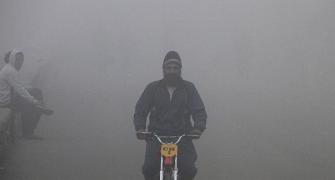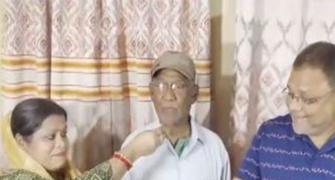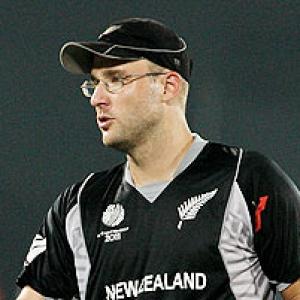 Many health policy initiatives of the government could not be rolled out for various reasons in 2012 during which the country faced fresh challenges on disease prevention as dengue and Japanese Encephalitis continued to claim lives.
Many health policy initiatives of the government could not be rolled out for various reasons in 2012 during which the country faced fresh challenges on disease prevention as dengue and Japanese Encephalitis continued to claim lives.
On the positive front, India continued its polio-free run for the second consecutive year and inched closer to polio free status in 2014.
To get a polio free certification of WHO, a country must report three polio free years.
United Progressive Alliance's ambitious schemes -- universal health coverage, free supply of medicines in government facilities and National Urban Health Mission -- could not be implemented with Health Ministry taking its promises into 2013.
Plan allocations for health sector failed to touch the expected 2.5 per cent of the GDP mark, which Prime Minister Manmohan Singh had promised, though overall 12th Plan allocations were much higher than the previous plan.
Though the first-ever National Entrance-cum-Eligibility Test for admission to post-graduate medical courses was held successfully in 2012, the examination for close to 45,000 MBBS and dental courses was delayed further into 2013.
The much-awaited bill to set up an overarching health sector regulator subsuming the medical, dental and pharmacy councils of India received a setback when the Parliamentary Standing Committee on Health returned it in a rare move.
The panel asked the government to redraft the bill taking all stakeholders on board besides recommending strengthening of existing regulators.
The National Commission for Higher Research in Health Bill was mooted in the wake of corruption in the MCI and other health sector regulators.
Another draft bill on mental healthcare which seeks to replace the archaic Mental Health Act of 1987 could also not be taken to the Cabinet despite timely draft preparation by the Health Ministry.
Disability rights activists and Social Justice Ministry expressed reservations on the bill saying it is against the spirit of UN Convention on Rights of persons with Disabilities which India ratified in October 2007.
Dengue deaths touched an all-time high of 227 last year as against 110 in 2011.
Japanese Encephalitis also claimed hundreds of lives and the Cabinet for the first time passed a multi-crore comprehensive plan to combat it.
On the non-communicable disease front, screening of citizens above the age of 30 for heart ailments and diabetes continued with the ministry expecting survey outcomes by 2013
On tobacco prevention, gutka was banned by 16 states and three UTs.
TB was also made a notifiable disease to prevent drug resistant TB and six AIIMS-like institutes started functioning.
Clinical drug trial sector, however, remained unregulated with the government failing to pass the amendments to Drugs and Cosmetics Rules to make clinical trials safer.
National antibiotic policy also remained elusive though Health Minister Ghulam Nabi Azad told Parliament that proposed amendments to the Drugs and Cosmetics Rules would provide for a separate Schedule to restrict the use of antibiotics.
Draft regulations for conduct of clinical trials of drugs were prepared and public opinion sought.
They propose to make consent of participants in clinical trials of drugs mandatory and seek audio-visual recording of such consent besides laying a formula for compensating those who suffer adverse events during trials.
In some good news, the National Pharmaceutical Pricing Policy pending for seven years to bring 348 drugs of the Essential Drug List under price control was finally approved by the Cabinet paving the way for cheaper medicines.
The ministry could not realise its proposal of extending the duration of MBBS from the present 5.5 years to make rural posting mandatory for all undergraduates.
The proposal is under MCI BOG's consideration.
On the immunisation front, 2012 was observed as the Year of Intensification of Routine Immunisation for 12 to 23 year olds where the vaccination is just about 60 per cent.
The idea was to cover 100 per cent children with vaccinations.
Programme effectiveness will be tested in 2013 when the outcomes are measured.
The year also saw the resolution of conflict between the Health Ministry and Information and Broadcasting Ministry over anti-tobacco scrolls in old and new films with the former diluting some harsh old provisions of the notification.
So actors need no longer dub their messages on non-endorsement of tobacco in films where they are shown using tobacco.
Also 30 second scrolls required to run through the scene depicting tobacco use earlier can now be stationary messages.
Although JE continued to be a major threat to children, overall Infant Mortality Rates declined to 44 per 1000 live births in 2011 as against 47 in 2010.
But a new UNICEF report showed that 188 under-five children were still dying every hour in India and the country saw 16,55,000 deaths of under-five children in 2011 -- 4,534 children every day.








